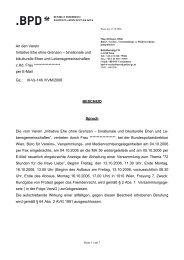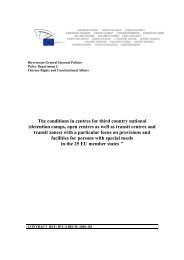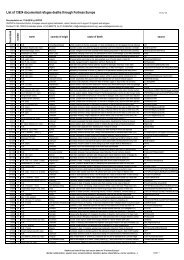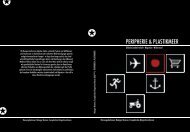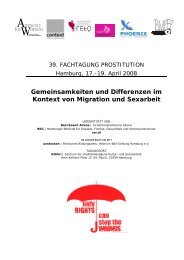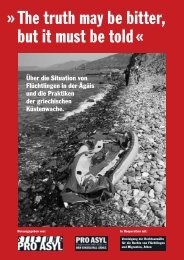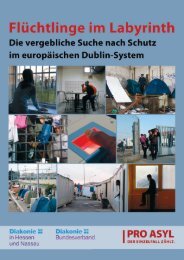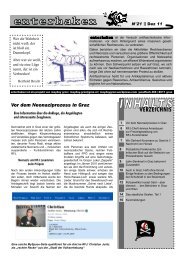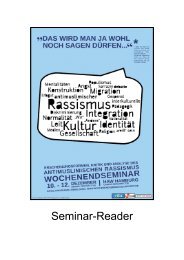Turin's CIE - International University College of Turin
Turin's CIE - International University College of Turin
Turin's CIE - International University College of Turin
Create successful ePaper yourself
Turn your PDF publications into a flip-book with our unique Google optimized e-Paper software.
IX.<br />
AN OVERVIEW OF THE ITALIAN LEGAL AND<br />
PROCEDURAL FRAMEWORK<br />
1. LEGAL FRAMEWORK ON FAIR HEARINGS<br />
<strong>International</strong> Law<br />
Italy has ratified numerous international and European human rights laws that function to<br />
ensure fair hearings and access to legal remedies.<br />
Article 10 UDHR states:<br />
“Everyone is entitled in full equality to a fair and public hearing by an independent and<br />
impartial tribunal, in the determination <strong>of</strong> his rights and obligations and <strong>of</strong> any criminal<br />
charge against him.”<br />
Council <strong>of</strong> Europe<br />
The Article 13 ECHR right to an effective remedy 107 and the Article 5 ECHR right to liberty and<br />
security <strong>of</strong> person 108 provide procedural safeguards that must be respected in immigration<br />
matters.<br />
In 2010 the Council <strong>of</strong> Europe’s Parliamentary Assembly published a report titled The Detention<br />
<strong>of</strong> Asylum Seekers and Irregular Migrants in Europe 109 , which established ten guiding principles<br />
on the legality <strong>of</strong> detention <strong>of</strong> asylum seekers and irregular migrants. One <strong>of</strong> the guiding<br />
principles was: “Detention shall be carried out by a procedure prescribed by law and authorised<br />
by a judicial authority and subject to a judicial periodic review”.<br />
European Union Law<br />
Chapter III <strong>of</strong> EU Directive 115/2008/EC outlines procedural safeguards in irregular migration<br />
cases. For example, articles 12(1), 13(1) and 13(3) state:<br />
Italian Law<br />
“12(1) Return decisions and, if issued, entry-ban decisions and decisions on removal<br />
shall be issued in writing and give reasons in fact and in law as well as information<br />
about available remedies. […]”<br />
“13(1) The third-country national concerned shall be afforded an effective remedy to<br />
appeal against or seek review <strong>of</strong> decisions related to return, as referred to in Article<br />
12(1), before a competent judicial and administrative authority or a competent body<br />
composed <strong>of</strong> members who are impartial and who enjoy safeguards <strong>of</strong> independence.”<br />
“13(3) The third-country national concerned shall have the possibility to obtain legal<br />
advice, representation and, where necessary, linguistic assistance.”<br />
The Italian legal provisions concerning hearings are found in Decreto Legislativo 286/1998,<br />
which stipulates that the following must occur when migrants are issued an expulsion decree:<br />
107 See Part C. Judicial and Legal Processes, Chapter VIII. Understanding what <strong>CIE</strong> Is.<br />
108 See Part B. Conditions <strong>of</strong> Detention, Chapter VI. Relationships with <strong>CIE</strong> Staff.<br />
109 Parliamentary Assembly, The Detention <strong>of</strong> Asylum Seekers and Irregular Migrants in Europe, Report by the<br />
Committee on Migration, Refugees and Population, Doc.12105, 11 January 2012.<br />
63 | P a g e




